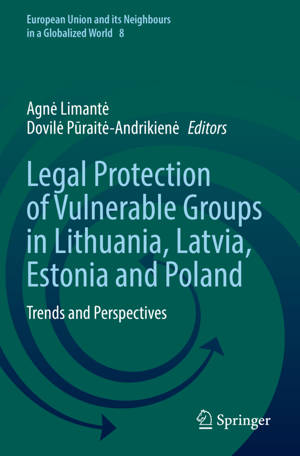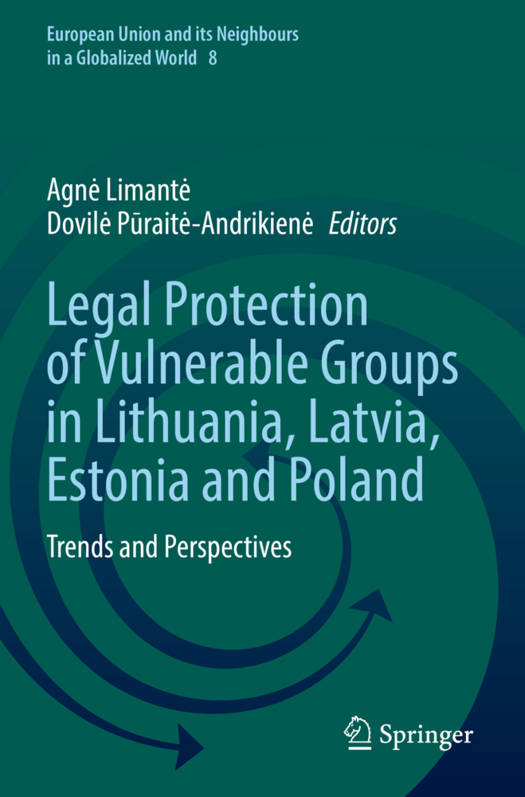
- Retrait gratuit dans votre magasin Club
- 7.000.000 titres dans notre catalogue
- Payer en toute sécurité
- Toujours un magasin près de chez vous
- Retrait gratuit dans votre magasin Club
- 7.000.0000 titres dans notre catalogue
- Payer en toute sécurité
- Toujours un magasin près de chez vous
Legal Protection of Vulnerable Groups in Lithuania, Latvia, Estonia and Poland
Trends and Perspectives
Description
In this book, the authors provide a comprehensive, comparative analysis of legal regulations and practices intended to protect vulnerable groups in Lithuania, Latvia, Estonia and Poland, and in the process, share insights into the current situation and trends in this often-overlooked region. Part I introduces readers to the topic by defining the concept of vulnerable groups and elaborating on its understanding in the European and national contexts. Part II analyses the legal protection of groups characterised by inherent and/or circumstantial vulnerability, while Part III addresses specific crime-related vulnerability issues in the target region. In closing, Part IV puts the spotlight on three specific vulnerable groups in the discussed countries.
Spécifications
Parties prenantes
- Editeur:
Contenu
- Nombre de pages :
- 409
- Langue:
- Anglais
- Collection :
- Tome:
- n° 8
Caractéristiques
- EAN:
- 9783031070006
- Date de parution :
- 29-08-23
- Format:
- Livre broché
- Format numérique:
- Trade paperback (VS)
- Dimensions :
- 156 mm x 234 mm
- Poids :
- 594 g

Les avis
Nous publions uniquement les avis qui respectent les conditions requises. Consultez nos conditions pour les avis.





